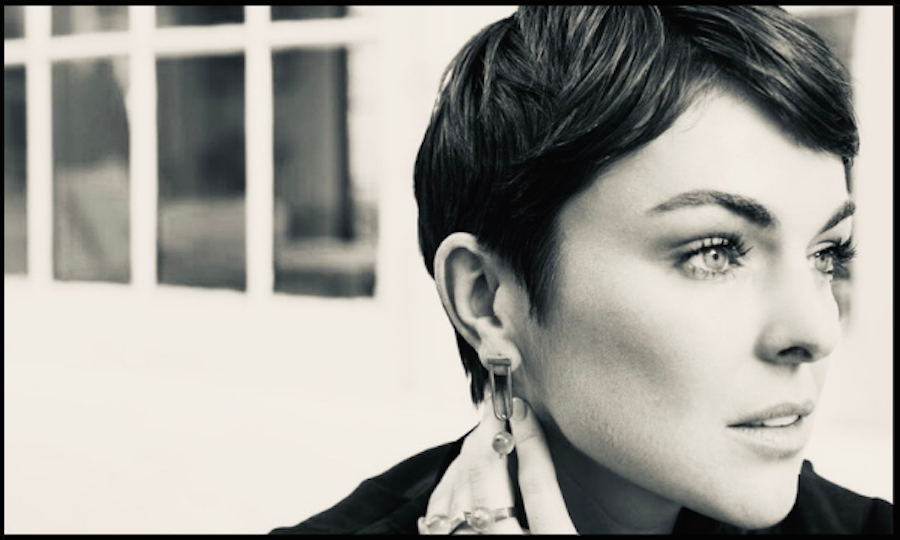Teaching Young People the Value of Community Leads to a Generation of Civically-Minded Leaders

I was raised in an artistic household in Vancouver. My mother was an actor/artist and my father was, and still is, a theatre director. They taught me from a young age that I was a global citizen. Giving back was a part of our everyday life, and when I started acting, I realized I had a platform to use my voice and give back at a greater capacity.
I was asked a few years ago what “my cause” was – the one initiative in which I wanted to make the most difference. It felt like a false choice to me. Why did I have to limit myself to just one cause? I have traveled to a refugee camp on the border of South Sudan with the UN on an anti-malaria mission, cycled across Cambodia to support women’s equality and rights, and organized a yearly skydiving event to fundraise for anti-sex trafficking efforts. I didn’t want to pick just one cause, and I thought about this question for quite some time. I knew if I was going to choose just one it needed to be something multifaceted. Then it came to me… education. Education has the ability to unlock a pathway to all world issues. And if we could create a tool that served as this pathway for young people, then no one would have to choose. We could tackle all world issues together.
So I co-founded Deedly, a not-for-profit which leverages innovative technology, creates captivating content and takes an evidence-based approach to curriculum development.
Despite the stereotypes that young people are unenthusiastic about global issues, we have found that when you activate a young person’s empathy and properly educate them on what’s happening around them, you don’t just harness the capacity of their mind, you harness the capacity of their heart, too. Just this Friday, thousands of students around the globe walked out of their classrooms to strike* for action on climate change. So how do we continue to support this empathy for even more global issues?
These are three of the biggest takeaways we’ve found from educating our youth on the value of contributing to their community:
1. Meet them where they are
Young people have amazingly creative, kinetic energy, and their idealism has gone largely untapped up to this point. They are the first generation to be considered true digital natives and are equipped with 21st-century technology in their pockets. They have every tool to synthesize and activate whole social movements at their fingertips which can bring the plight of others to the forefront of the global consciousness while connecting us in a historically unprecedented way. If you bring issues to them on their phones, social media, and in the physical spaces they occupy, like the classroom, you can capture their attention simply by meeting them where they are – and then give them the tools to engage in the solution all at once.
2. Teach them how they are connected to the issue
As our individual knowledge expands, we deepen our understanding of the complexity of human beings. We start to take notice of what we have in common with humans, near and far. If you challenge a student in New York to carry a 5-gallon jerry can of water just a fraction of the distance a child their same age in rural Africa has to carry it each day, they feel a physical, emotional and mental connection to the issue. When a young person’s heart is opened in this way, they will feel inspired to take action. Education builds motivation.
3. Give them a call to action
Once kids are educated on the realities of a world issue, it’s our job to help prompt action, rather than reaction or fatigue. There are so many organizations out there doing great work and if we can connect our young people to them through the technology they use every day, we are unlocking the pathway for a global community of youth to access and accomplish change together.
The Child Development journal published a study* in 2018 finding that students who participate in service activities have higher levels of civic efficacy, and experience positive mental health benefits. Just like we saw with Friday’s climate strike, when you invest in the minds of young people, bridge the technology gap, and give them an opportunity to contribute and create change in their communities and the world at large, we can empower them to make the decisions that will make our planet a better place for all.
Serinda Swan is an actress and co-founder of Deedly, an education technology tool for students and educators to civically inform and raise consciousness within the classroom – creating life-long activists. For educators, parents or students interested in utilizing this tool, you can find more information on www.deedly.com.
Source 1:www.theguardian.com/environment/live/2019/mar/15/climate-strikes-2019-live-latest-climate-change-global-warming
Source 2: Jahromi, Ballard, Parissa & Hoyt, Lindsay & Pachucki, Mark. (2017). Impacts of adolescent and young adult civic engagement on health and socioeconomic status in adulthood.
This essay was featured in the March 17th edition of The Sunday Paper, Maria Shriver’s free weekly newsletter for people with passion and purpose. To get inspiring and informative content like this piece delivered straight to your inbox each Sunday morning, click here to subscribe.
READ MORE STORIES THAT MOVE HUMANITY FORWARD
READ MORE STORIES THAT MOVE HUMANITY FORWARD
SIGN UP FOR MARIA’S SUNDAY PAPER

